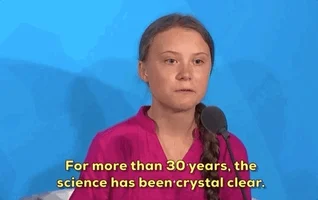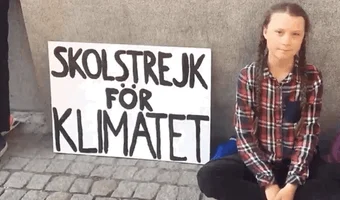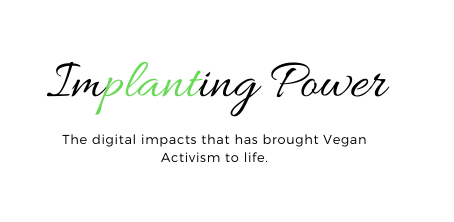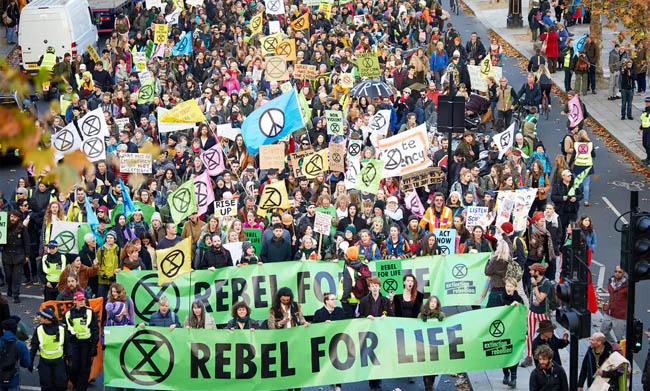Happy New Year Plant Powered Friends!
This second blog post is a little later than scheduled due to new year’s and myself being away, but I hope everyone has had an amazing time welcoming in 2020.
It is the new year, and now January. The exciting part of this is that it means for many vegan activists it is now better known as ‘Veganuary’ and every year more people are trying to be vegan for the month of January. It also means it is my 2-year vegan anniversary. In celebration of this I will be doing a video this month about vegan food, as this is usually a main question I have received either from people thinking vegans can only eat grass (!) or from people being curious where to look for alternatives and what recipes I would recommend.
Anyway, this blog post is orientated around the climate impacts the agriculture industry is having and therefore the environmental impacts of a vegan lifestyle choice.
In my previous post I touched upon the ethical reasoning for becoming vegan, for me, a main contributor, for others, Bacon just tastes too nice to give up. But, we are becoming more globally aware of how our planet is under threat of species and mankind becoming inevitably extinct if we do not take action because of the internet.
Veganuary?
Veganuary are a non-profit organisation orientated around promoting veganism, sharing campaigns to try gain interest in becoming vegan for the month of January by getting people over the world to sign up to their Veganuary challenge. ‘During the 2019 campaign, more than a quarter of a million people took our pledge to try a vegan diet, while more than 500 brands, restaurants and supermarkets promoted the campaign, and launched more than 200 new vegan products and menus in the UK market alone.’ (Veganuary, 2019). Their end result is to encourage people to continue a vegan lifestyle after taking part in their 31 day challenge and eventually turn the world vegan!
How is agriculture effecting our world?
A big name of 2019 was a Swedish girl named Greta Thunberg. Her journey started in 2018 after skipping school to strike against global warming. She doesn’t understand what the point is of her gaining education if the world is going to end. She started the Extinction Rebellion protests which dominated major cities over the world.

She recently released a book named ‘NO ONE IS TOO SMALL TO MAKE A DIFFERENCE’ (May 2019). She has spoken with many scientists who have said the same thing, that greenhouse-gas emissions are continuing to increase and that we have under three years to reverse the growth to meet the Paris Agreement of keeping below the 2 degrees warming target. According to the IPCC (Intergovernmental Panel on Climate Change) we are less than 12 years away from not being able to reverse our mistakes, this includes reducing our CO2 emissions by 50%. ‘We are in a midst of the sixth mass extinction, with about 200 species going extinct every single day.’ (Thunberg, 2019).
Extinction Rebellion saw 4 million people in 170 different countries protest for climate change. It is interesting that this is not covered very heavily in the media. It should be breaking news that we are ticking timebomb, or that Greta phrases ‘our house is on fire’. Whilst we cannot force everybody at once to save the planet today, we can start the change we want to see in ourselves. The number one contributing factor to our total global CO2 emissions is agriculture. Many of us are becoming aware of this due to the digital world of information we can now receive. Yes, using a paper straw or cycling to work helps, but it is now known that cars are not the main contributor – in fact, it is what we are eating.
Here are some facts from Culinary Schools website;
- A vegan diet requires 300 gallons of water per day vs. a meat-eating diet that requires 4,000 gallons per day.
- Methane is 20x more powerful at trapping heat in the earth’s atmosphere than carbon dioxide.
- If every American dropped one serving of chicken per week, it would save the same amount of CO2 emissions as taking 500,000 cars off the road.
- Becoming vegan would reduce an average person’s carbon footprint by 1.5 tonnes per year.
- Meat, eggs and dairy produce 65%of worldwide nitrous oxide emissions.
- Eating a meat-based diet creates 7 x greenhouse gas emissions compared to a vegan diet.
- Land the size of a football pitch is becoming land for agriculture every minute.
This knowledge would not be so easily available to us or me without the digital era. We would not be aware of Extinction Rebellion. We would not be able to connect with others who want to protest or share knowledge. We would not have access to the information discussed in this blog. Greta Thunberg would not be a known name in 170 countries, nor would 4 million people be pledging we need to stop eating meat and dairy. Programs like Cowspiracy on Netflix would sound like some strange cow empowerment group at the local pub. The digital impacts have meant we can be aware, and with awareness, we can change.

Credits:
Features picture from Pexels.
Thunberg, G. (2019). No one is too small to make a difference. 1st ed. Great Britain.
GIF’s:
Climate Change GIF


